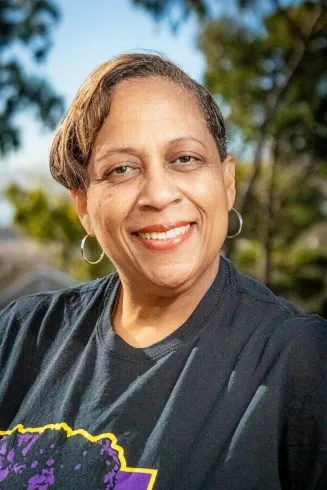
By Paméla Michelle Tate, Ph.D., Special to California Black Media Partners
It was the Monday morning after her husband had a “situation” involving their child, resulting in food flying in the kitchen and a broken plate.
Before that incident, tensions had been escalating, and after years of unhappiness, she finally garnered enough courage to go to the courthouse to file for a divorce.
She was sent to an on-site workshop, and the process seemed to be going well until the facilitator asked, “Have you experienced domestic abuse?” She quickly replied, “No, my husband has never hit me.”
The facilitator continued the questionnaire and asked, “Has your husband been emotionally abusive, sexually abusive, financially abusive, technologically abusive or spiritually abusive?” She thought about how he would thwart her plans to spend time with family and friends, the arguments, and the many years she held her tongue. She reflected on her lack of access to “their money,” him snooping in her purse, checking her social media, computer, and emails, and the angry blowups where physical threats were made against both her and their children. At that moment, she realized she had been in a long-suffering domestic abuse relationship.
After reading this, you might not consider the relationship described above as abusive – or you might read her account and wonder, “How didn’t she know that she was in an abusive relationship?”
Survivors sometimes lack awareness about the dynamics of healthy relationships, particularly when one has not been modeled for them at home. Media often minimizes domestic abuse, pushing the imagery of loyalty and love for one’s partner above everything – even harm. The normalization of abusive behaviors shown in movies, social media, and television has desensitized us to the harm that people experience every day under the “disguise of love.”
After working with survivors at Black Women Revolt Against Domestic Violence in San Francisco, California, I have learned a great deal from a variety of survivors. Here are some insights I’ve gleaned from the stories that have been shared with me:
1) Abuse thrives in isolation. Societal tolerance of abusive behavior is prevalent in the media, workplaces, and even churches although there are widely accepted societal rules about the dos and don’ts in relationships.
2) Survivors are groomed into isolation. Survivors are emotionally abused and manipulated almost from the beginning of their relationships through love-bombing. They are encouraged or coerced into their own little “love nest,” isolating them from family and friends. This isolation enables the abuse to escalate, and the survivor is groomed to believe that it’s “them against the world”. During this time, survivors often present a perfect picture of their partner to loved ones, making it too embarrassing to later admit they were wrong.
3) People who harm can be charismatic and fun. Those outside the relationship often struggle to believe the abuser would harm their partner until they witness or experience the abusive behavior firsthand.
4) Survivors fear judgment. Survivors fear being judged by family, friends, peers, and coworkers. This fear of judgment and isolation often leads to shame and embarrassment, preventing them from speaking out about their abuse.
5) Survivors often still love their partners. This is not Stockholm Syndrome, it’s love. Survivors remember the good times and don’t want to see their partner jailed; they simply want the abuse to stop.
6) The financial toll of abuse is devastating. According to the Allstate Foundation’s study, 74% of survivors cite lack of money as the main reason for staying in abusive relationships. Financial abuse often prevents survivors from renting a place to stay. Compounding this issue is the lack of availability of domestic abuse shelters. Survivors, especially those with children, face challenges when shelters cannot accommodate family units, and the average six-week stay often isn’t enough.
While this list of lessons that I have learned is not exhaustive, the main thing that I have learned from this work is that survivors are resilient, and they are the true experts of their own stories and their paths to healing. So, whenever you encounter a survivor, please take a moment and acknowledge their journey to healing and applaud their strength and progress. Offer them your love and support because healing from domestic violence is not easy and their healing is our healing!
About the Author
Paméla Michelle Tate, Ph.D., is the Executive Director of Black Women Revolt Against Domestic Violence in San Francisco, CA. She is an advocate, preventionist, speaker, and survivor.

